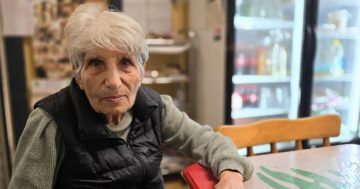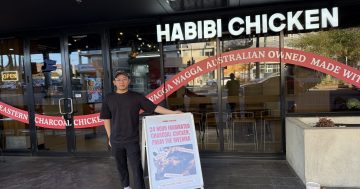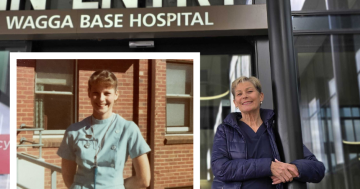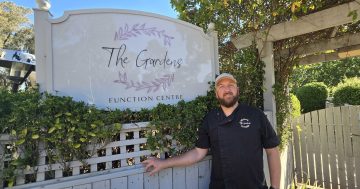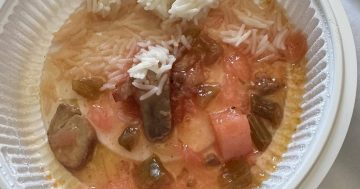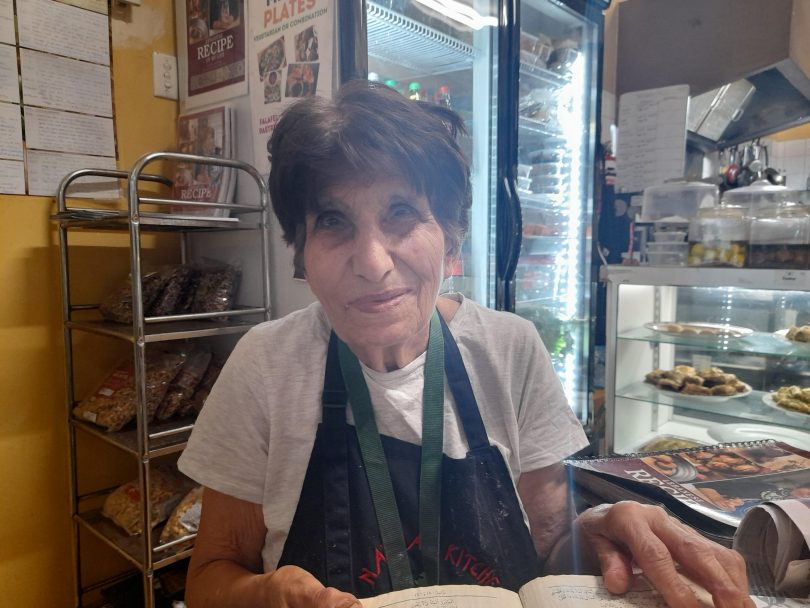
Nabiha Koriaty welcomes visitors to her Wagga Wagga cafe. Photo Chriss Buchan.
In the well-lit eatery, its counter covered high with culinary delights, three assistants appear. One, an apron-clad petite lady, comes forward.
Welcome to Nabiha Koriaty’s Kitchen in Wagga Wagga.
From a family-sized table covered in coloured cloth and plastic, Nabiha looks up with smiling eyes and begins to retell her story – one of hard work, love and devotion.
Born in Rashaya Al Foukhar, Lebanon, population 100, Nabiha was one month old in 1941 when her family fled to another country town because of wartime fighting.
At age three she lost her mum due to heart disease, and at 12 was captured by guerrillas who accused her of being a spy.
Her working life began in an English school in Beirut.
“I would mop, wash and scrub fast then race off to the kitchen, I loved it there. That’s how I learned Lebanese cooking,” Nabiha recalls.
She later married and in 1968, her husband Karam came to Australia to begin work in Melbourne with Moore Paragon.
With daughters Jocelyn and Angela, Nabiha soon set sail on the Australis for the 31-day ocean trip to join her husband and start a new life in a church house in Richmond.
She then gave birth to her third daughter Victoria, named after the family’s new home state.
But Nabiha missed her cooking and began to bake bread in a shed, treating neighbours with the goodies and selling some at cafes and general stores.
In 1970, she started working in a factory next door for $7 a week. While Nabiha swept and cleaned, Victoria slept in the office.
Karam was transferred to Wagga Wagga in 1973. Nabiha again worked, this time for a strawberry farm and later at a meat processing plant and dry cleaner. She also baked bread and brought up the girls.
Neighbours finally encouraged Nabiha to set up her own café and in 1989, with her limited English, she approached the bank for a loan.
She was declined. But undeterred, their search for suitable premises finally ended in a modest tiled arcade.
The small area with a big glass window and single door now bears the name ‘Nabiha’s Kitchen’ in bright red writing.
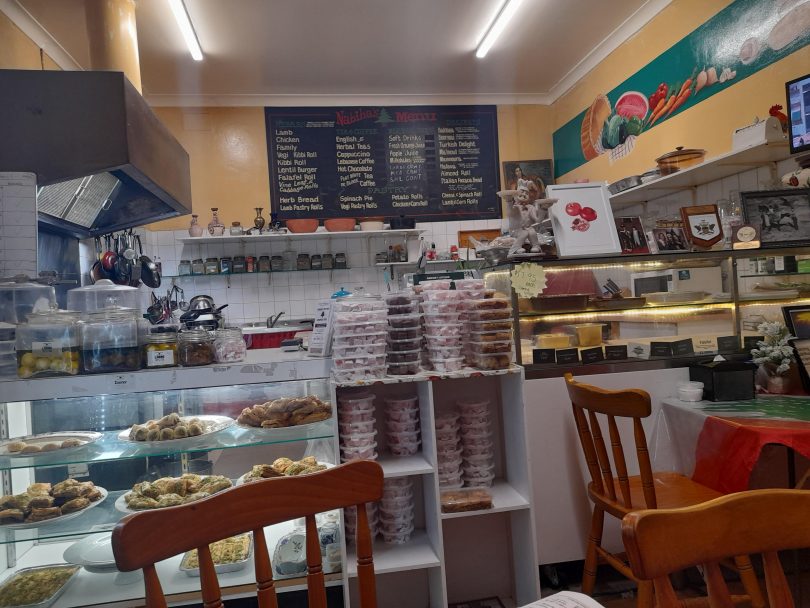
Nabiha’s Kitchen offers a treat for every taste. Photo: Chriss Buchan.
A special opening night heralded its beginning. Now 32 years on, the “little lady” is still seen at church daily, then in the café for 15 hours on Mondays to Saturdays.
From there, the aroma of Lebanese coffee, garlic and home cooking wafts down the arcade enticing everyone from bank officers to shop assistants, medical professionals to shoppers into her cosy cafe.
Karam died peacefully with Nabiha beside him in 2008. Victoria now helps her mum while “Siri” provides digital communications support.
“Speaking into the phone is a much-preferred option [than writing],” Nabiha says.
Family in England encouraged Nabiha to travel and she lights up with memories of her trip to Jerusalem and Bethlehem.
She also retrieves a special keepsake that hasn’t left her side, a tattered 60-year-old Lebanese Bible given to her by a friend.
Nabiha again recounts her journey on the Australis when the captain blew the emergency safety whistle to warn of bad weather. She shows the page where the bible fell open on that day. Marked with a cross – it reveals the story of Jesus walking on water.
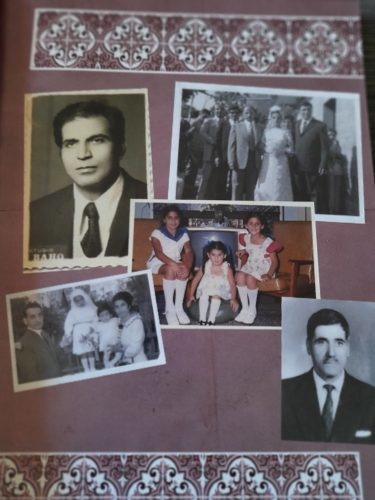
Nabiha shares some of her dearest memories from one of the family scrapbooks. Photo: Chriss Buchan.
As more customers front the counter, another book captures the eye. An impressive maroon-bound A4 title of more than 100 pages – Nabiha’s own “Lebanese Recipe of my Life”.
Published in 2013, it tells the story of Nabiha’s amazing life, woven together with many of her famous food recipes, and gives the reader an opportunity to learn more about this remarkable woman and her zest for cooking.
Original Article published by Chriss Buchan on About Regional.







